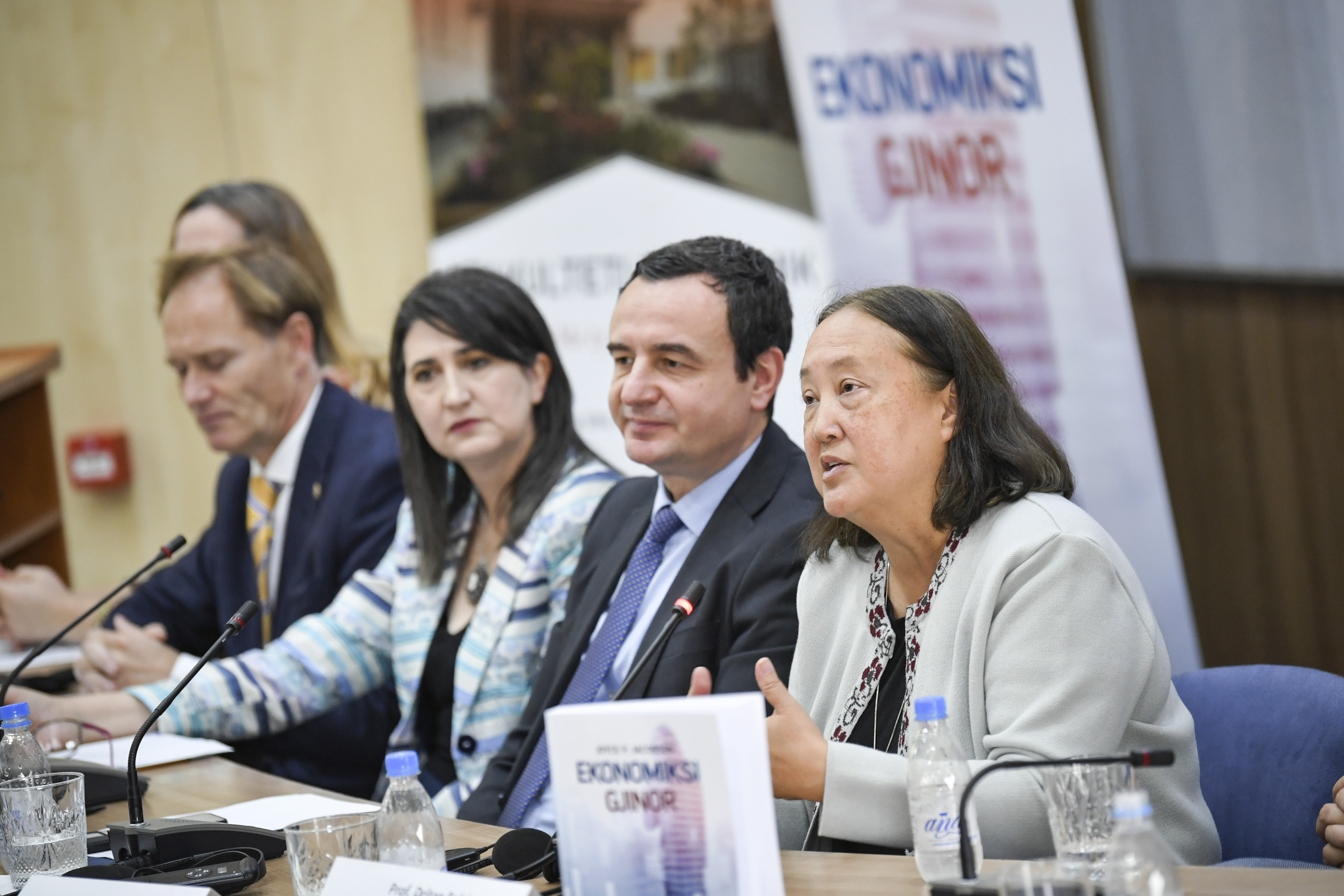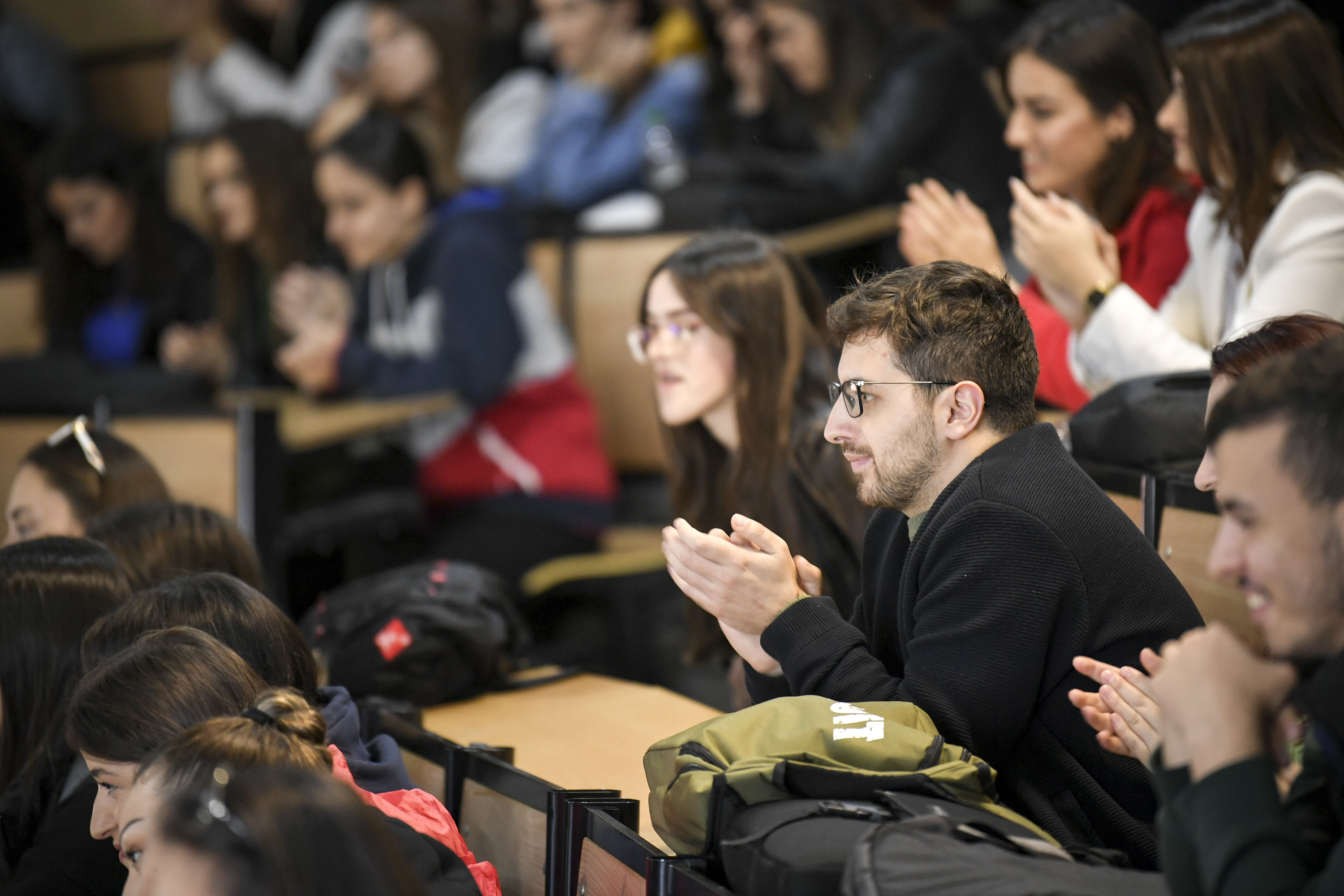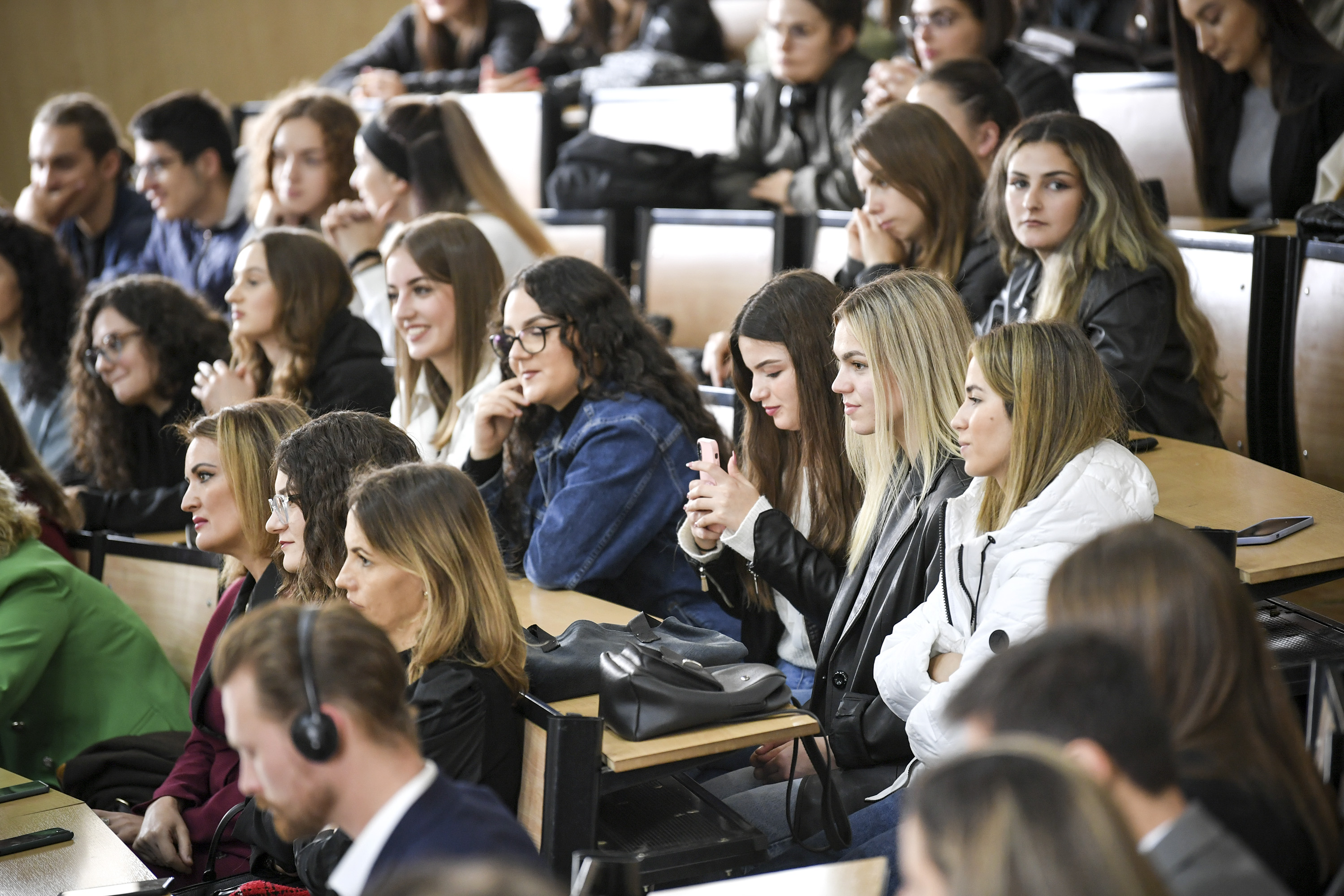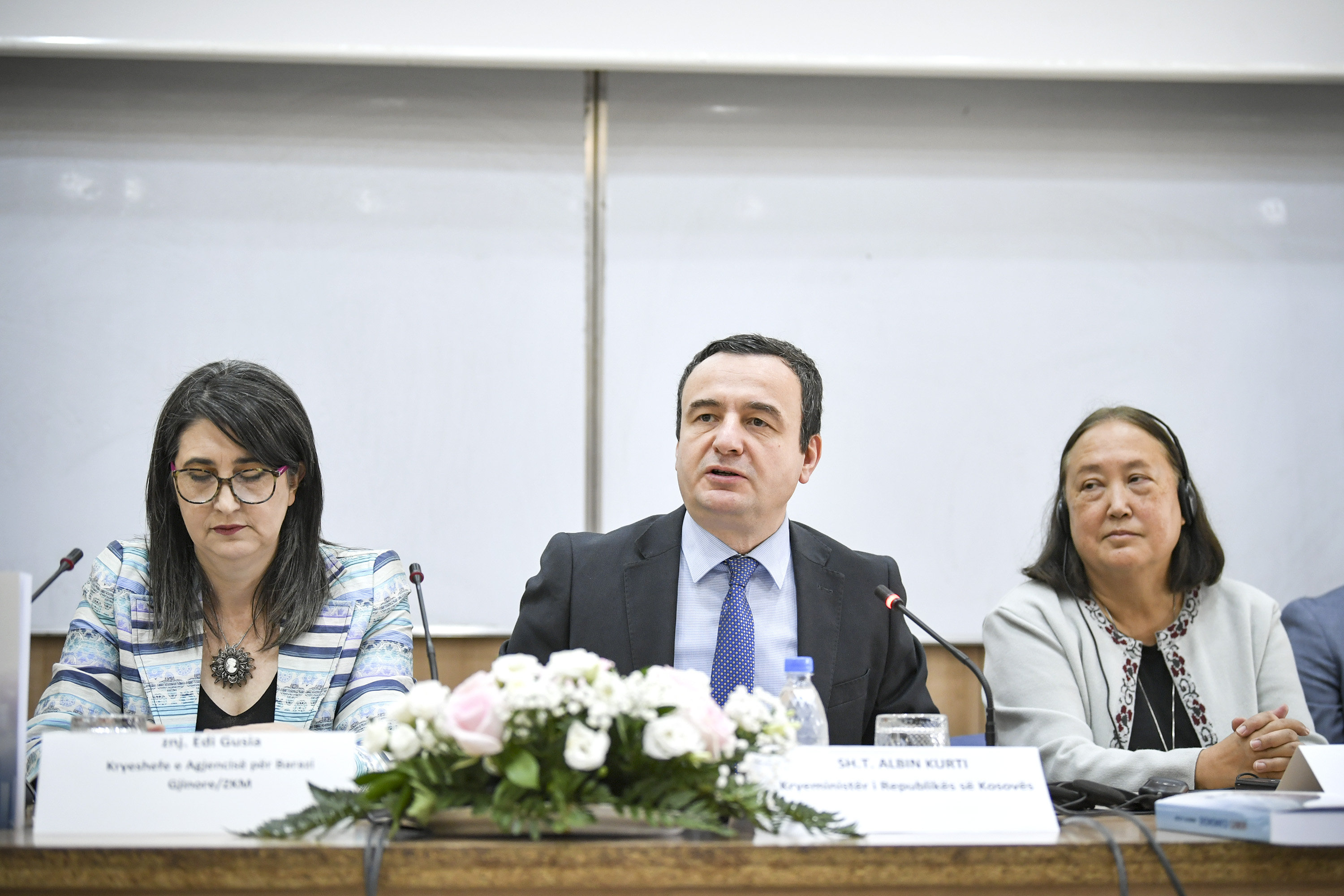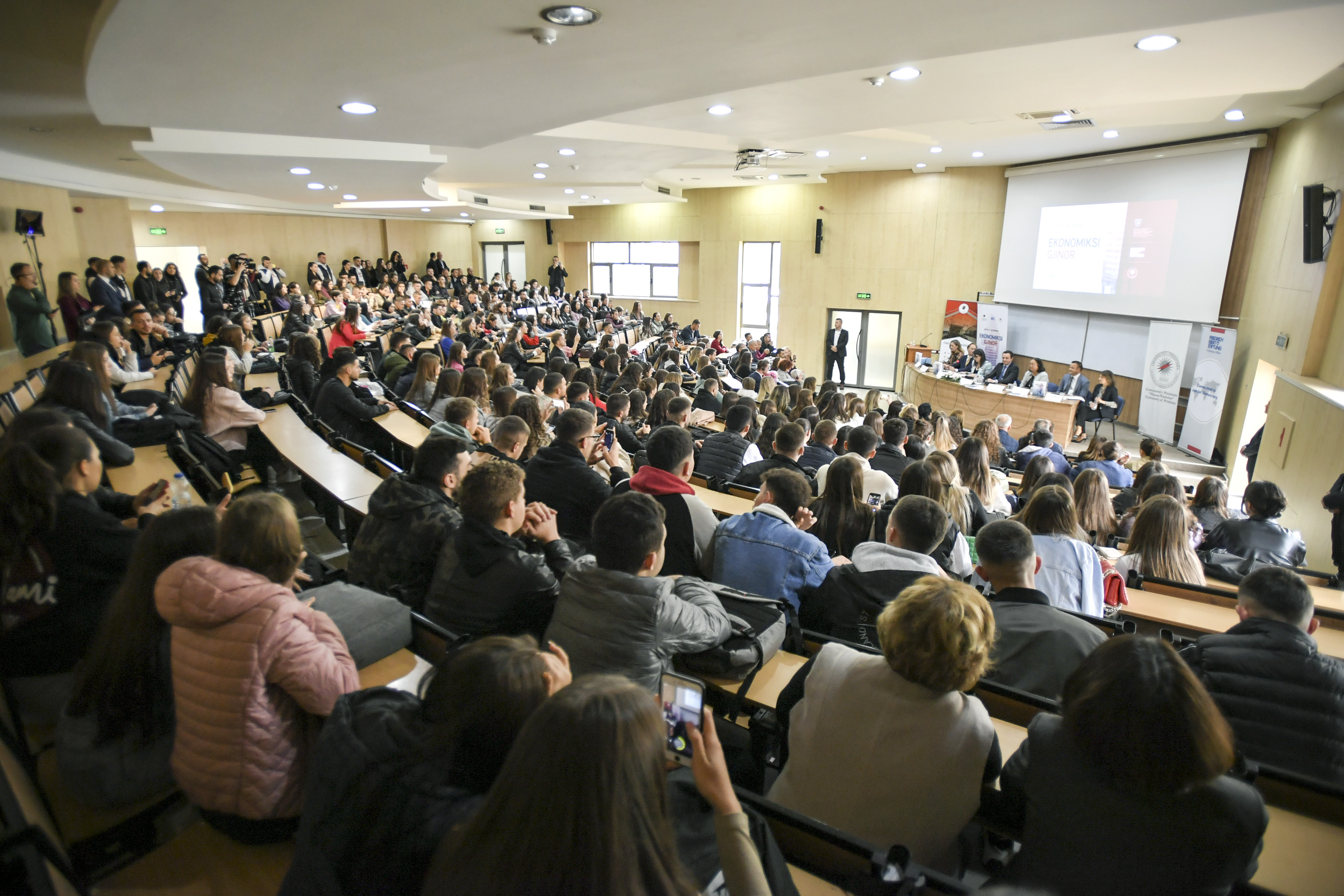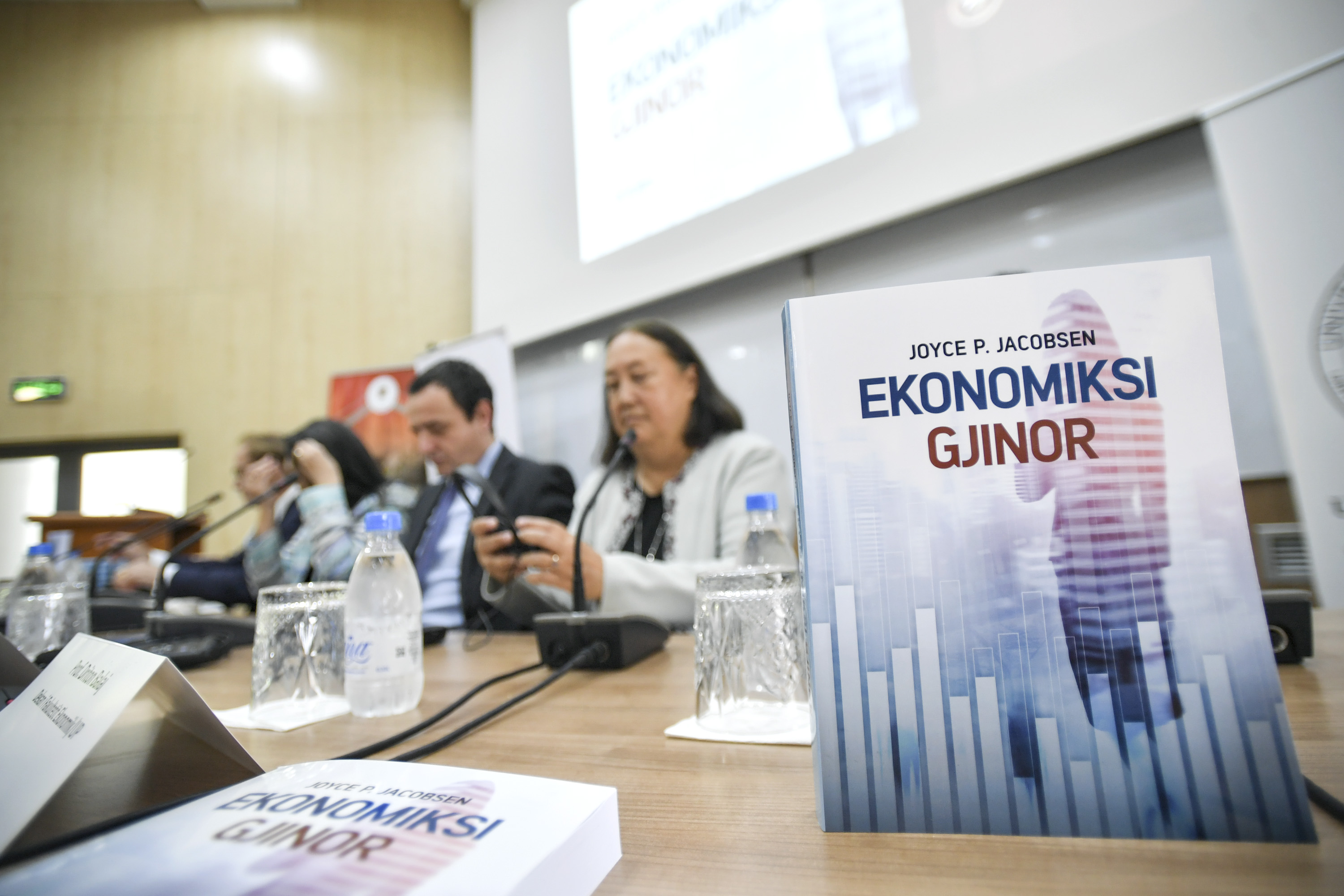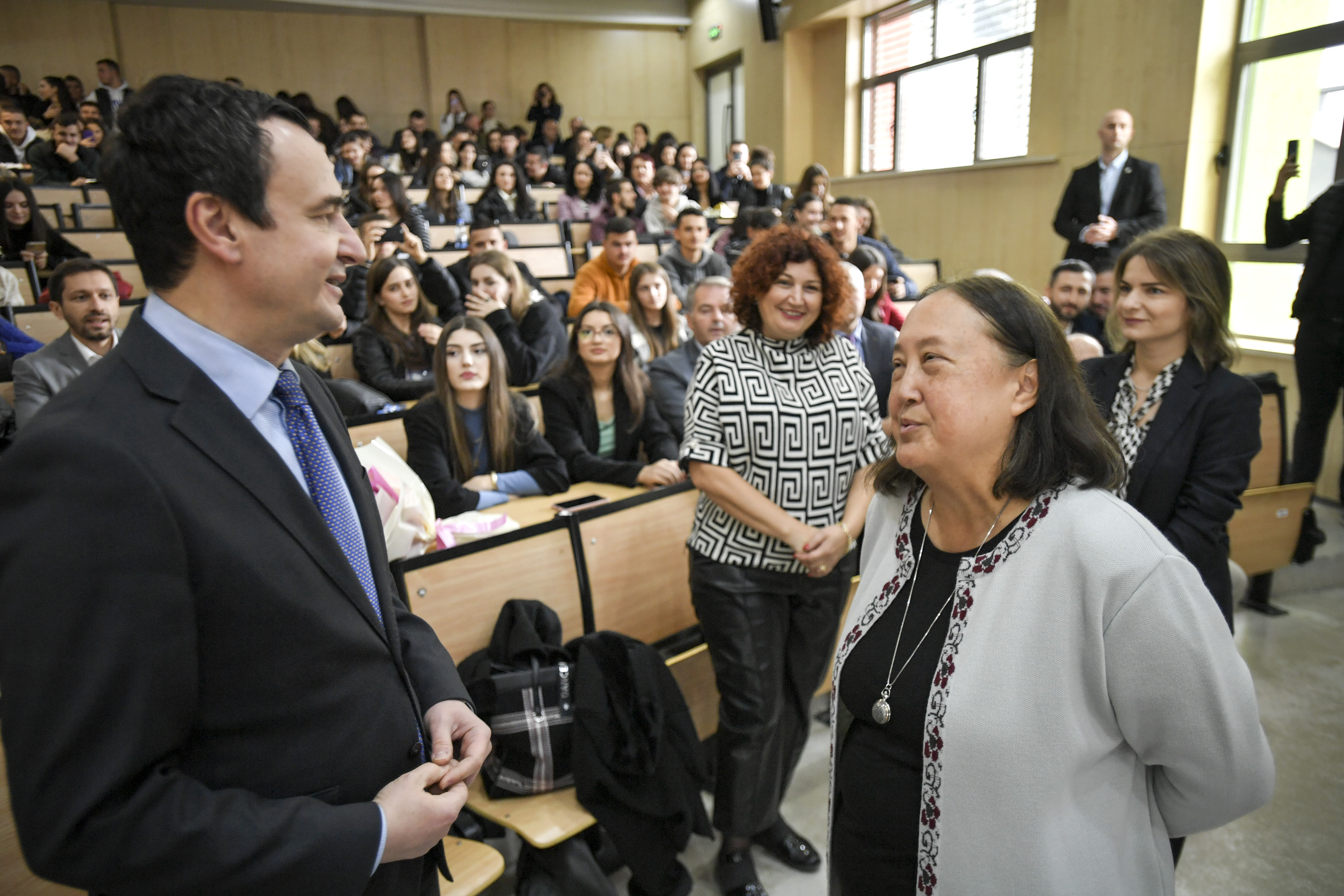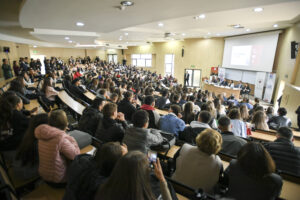Pristina, November 7, 2022
“The foundations of social justice Rights, are: equal access to financial resources, equal services and opportunities for women and men”, said the Prime Minister of the Republic of Kosovo, Albin Kurti, at the publication of the book translated into Albanian ” Ekonomiksi Gjinor (The Economics of Gender)” by the author Joyce P. Jacobsen, organized by the Agency for Gender Equality (AGE) within the Office of the Prime Minister.
Prime Minister Kurti said that the inclusion of women through participation and representation, in the drafting of policies and decision-making, paves the way for the progress and transformation of society. This is the only way to ensure that half of the population’s potential, skills and talents are not left aside.
Speaking about the measures taken by the Government of Kosovo to support women and girls, Prime Minister Kurti said that through gender integration within the Economic Revival Package, specific measures have been designed to support the economic empowerment of women and increase women’s access to education and employment.
“We have supported the employment of women, a measure that has benefited over 3,500 women and 1,490 businesses. We have supported businesses that are owned by women, with the value of the subsidy close to half a million euros (491,988), while the value of the provided credit exceeds 3 million euros. Since the beginning of the support scheme for new mothers, until now we have about 200 thousand beneficiaries of Child Allowances and over 23 thousand beneficiaries of Maternity Allowances. We are financially supporting shelters that offer services to victims of domestic violence and gender-based violence, in the process of their social protection and re-integration. For the academic year 2021/2022, we have allocated 1365 scholarships for women and girls for studies in STEM. We have awarded 13 scholarships to students with disabilities. We have supported 10 girls for doctoral scholarships. And in agriculture, for 2021 we have allocated subsidies to 1325 women beneficiaries”, said Prime Minister Kurti.
Afterwards, he said that integration is not enough. Liberation is needed. Inclusion is not enough. Participation is required. Marginalization, exclusion, any kind of discrimination, is essentially a lack of freedom. You cannot be both free and marginalized; both free and excluded; both free and discriminated against. Therefore, liberation is needed and solidarity is needed for liberation. Women and girls should be in solidarity with each other in their common efforts and struggles, and men and boys should help them, said the prime minister.
In this promotion of this book with 500 copies, most of which will remain here at the Faculty of Economics for the needs of students and researchers of the University of Pristina, I am happy to be participating, because I am convinced that both knowledge, study and emancipation come from reading, they also come from discussion, but they come especially from reading, said Prime Minister Kurti.
The full speech of Prime Minister Albin Kurti:
Thank you Mrs. Gusia,
Dear Ms. Joyce Jacobsen, author of the book “Gender Economics”,
Dear Ambassador of Sweden in Kosovo, Jonas Westerlund,
Honorable vice-dean Mrs. Aphrodita Berisha,
Dear Dean, Mr. Driton Balaj,
Dear Ms. Rudina Nallbani, from the Friedrich Ebert Stiftung,
Dear professors and students,
Ladies and gentleman,
Dear attendees,
We are meeting today to promote the book translated into Albanian “Ekonomiksi Gjinor”, by the well-known author Joyce P. Jacobsen.
The establishment of gender studies at the level of academic studies, preceded the professional preparation of future policy makers, with the concepts of gender equality and gender integration in legislation and public policies in the field of economy.
The inclusion of women with participation and representation, in the drafting of policies and in decision-making, access to opportunities and services, paves the way for the progress of the transformation of our society. This is the only way to ensure that half of the population’s potential, abilities and talents, at least half, are not left aside.
Rights, opportunities, equal access to financial resources, services and equal opportunities for women and men are the foundations of social justice.
We cannot have social equality without gender equality.
Unlike men, women do not have the same starting point either for employment or for public engagement. A woman has a double difficulty and burden in her public commitment to society. It fights general inequality in society, including gender inequality. The percentage (21%) of active women in the labor market in Kosovo is not only harmful for their future, but also harmful for the future of our country. Therefore, we need to increase it as quickly as possible. Empowering women is crucial to achieving sustainable development.
Through gender integration within the Economic Revival Package, specific measures have been designed to support women’s economic empowerment and increase women’s access to education and employment.
We have supported the employment of women, this measure, from which 3,500 women and 1,490 businesses have benefited.
We have supported businesses, which are owned by women, with a subsidy value of close to half a million euros, or exactly 492 thousand euros, while the value of the enabled credit exceeds 3 million euros.
Since the beginning of the support scheme for new mothers, until now we have about 200 thousand beneficiaries of Child Allowances and over 23 thousand beneficiaries of Maternity Allowances.
We are financially supporting shelters, which provide services to victims of domestic violence and gender-based violence, in the process of social protection for their re-integration.
For the academic year 2021/2022, we have allocated 1365 scholarships for women and girls for studies in STEM. We have awarded 13 scholarships to students with disabilities. We have supported 10 girls for doctoral scholarships. And in agriculture, for 2021, we have allocated subsidies to 1325 women beneficiaries.
Equality of opportunity may not be enough to repair the historical oppression and disadvantage of women, so it is necessary to take affirmative measures to combat discrimination against women. We are working to increase women’s access to information, financial resources, decision-making, as well as their awareness regarding participation in social life, in order to achieve a certain level of control over the environment in which they live.
And in this sense, integration is not enough. Liberation is needed. Inclusion is not enough. Participation is required. That, the one who integrates you and the one who includes you, is higher than you. It means, I am including you. I’m integrating you. But marginalization, exclusion, any kind of discrimination, is essentially a lack of freedom.
You cannot be both free and marginalized; both free and excluded; both free and discriminated against. Therefore, liberation is needed and solidarity is needed for liberation. Women and girls should be in solidarity with each other in their common efforts and struggles, and men and boys should help them.
We live in a democracy where there is pluralism and there will be competition, but no competition without cooperation, no diversity without solidarity. Both diversity and solidarity; both competition and cooperation.
Dear ladies and gentlemen,
As state institutions and as civil society we must cooperate for the creation and maintenance of centers of gender solidarity.
We need social emancipation, which highlights the awareness and education of men.
Because we constantly say that there should be education and emancipation for women, but it is much easier to emancipate and educate women, when we also have the emancipation and education of men. Men’s education helps a lot. Therefore, we must jointly educate men in order to emancipate society in general and I believe that this is possible, but we must be more active, more active in communication with each other, build this solidarity and to show that we can be different, that’s why diversity flourishes. It is the wealth of the society.
However, being different does not make it impossible to be equal. Only those who are identical are not equal. Even, precisely by being different, we can, must and will be equal. Someone is from the village, someone from the city; someone is taller, someone is shorter; someone richer, someone poorer; someone older, someone younger; some women and some men. So we are different, but being different should not prevent us from being equal. In fact, precisely by being different, we prove that we can establish, maintain and advance equality.
Many injustices and oppressions that occur in our society are the result of the unaddressed consequences of the last war, which are expressed in different forms in our society.
We therefore need general awareness and in this way as a human society we must create equality where there is most inequality, because inequality is also in so many different degrees. Where there are the greatest needs, we must intervene first, and where there are great needs, there is also great oppression, oppression and inequality, and there the intervention is required, which in my opinion is twofold. On one side is institutional responsibility and on the other side is social awareness, both as state institutions and as society of our country.
In this promotion of this book with 500 copies, most of which will remain here at the Faculty of Economics for the needs of students and researchers of the University of Pristina, I am happy to be participating, because I am convinced that both knowledge and study and emancipation come from reading, they also come from discussion, but they come especially from reading.
Both reading and discussion are required. This discussion without reading becomes a cacophony of controversies, which are more distracting than exhaustive. But, on the other hand, reading without discussion creates isolated researchers, where social value remains lacking.
So, dear Mrs. Jacobsen, we are very happy to be here today and we are deeply grateful for your generosity and the free offer of the copyright for the translation of the book in the Albanian language, for the Agency for Gender Equality, within the Prime Minister’s Office.
So, we are having this discussion, so that we can do the reading and continue the discussion.
We are also grateful to the Swedish Agency for International Development – SIDA, the Friedrich Ebert Stiftung and the University of Pristina for their support.
Thank you for the pleasant reading!

